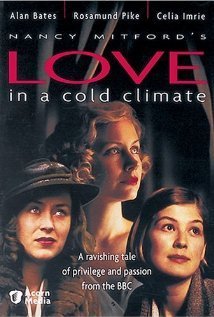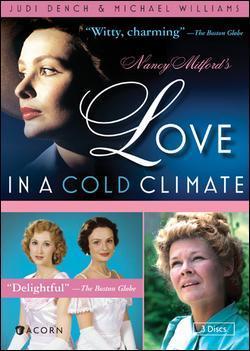What do you think?
Rate this book


468 pages, Paperback
First published January 1, 1974
"Well, you know, they did...They really worshipped us. It was quite touching. And, of course, we deserved it. We did a very great deal for them. I think I may say we put India on the map. Hardly any of one's friends in England had ever even heard of India before we went there, you know."
There was always some joke being run to death at Alconleigh, and just now it was headlines from the Daily Express which the children had made into a chant and intoned to each other all day.
Jassy: "Man's long agony in a lift-shaft."
Victoria: "Slowly crushed to death in a lift."
Aunt Sadie became very cross about this, said they were really too old to be so heartless, that it wasn't a bit funny, only dull and disgusting and absolutely forbade them to sing it any more. After this they tapped it out to each other, on doors, under the dining-room table, clicking their tongues or blinking with their eyelids, and all the time in fits of naughty giggles.
I hope I am not giving the impression that Davey's whole life was centred around his health. He was fully occupied with his work, writing, and editing a literary review, but his health was his hobby, and, as such, more in evidence during his spare time, when I saw most of him. How he enjoyed it! He seemed to regard his body with the affectionate preoccupation of a farmer towards a pig—not a good doer, the small one of the litter, which must somehow be made to be a credit to the farm. He weighed it, sunned it, aired it, exercised it, and gave it special diets, new kinds of patent food and medicine, but all in vain. It never put on so much as a single ounce of weight, it never became a credit to the farm, but somehow it lived, enjoyed good things, enjoying its life, though falling victim to the ills that flesh is heir to, and other imaginary ills as well, through which it was nursed with unfailing care, with concentrated attention, by the good farmer and his wife.
"She's a tactless person, but she is perfectly right you know. Polly needs a life of her own, babies, occupations and interests—an establishment, in fact—and for all that she must have a husband."
"Or a lady of Llangollen," said Victoria.
"Time you went to bed, miss, now off you go, both of you."
"Not me, it's not nearly my bedtime yet."
"I said both of you, now begone."
They dragged themselves out of the room as slowly as they dared and went upstairs, stamping out "Man's long agony" on the bare boards of the nursery passage so that nobody in the whole house could fail to hear them.
"Those children read too much," said Aunt Sadie. "But I can't stop them. I honestly believe they'd rather read the label on a medicine bottle than nothing at all."
"Oh, but I love reading the labels on medicine bottles," said Davey. "They're madly enjoyable, you know."

